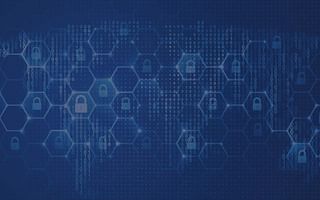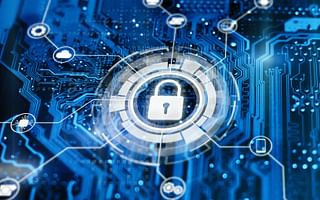Maya Braun is a seasoned expert in the realm of cryptography, driven by a profound interest in data privacy. Her professional journey has been dedicated to the design and development of secure communication systems, while also being a vocal advocate for digital rights. Maya takes pleasure in penning down her thoughts on the latest breakthroughs in cryptography and their potential impacts on privacy.
What are some important cybersecurity tips to keep in mind when using digital services?
When it comes to using digital services, keeping your personal information and data secure should be a top priority. With cyber threats becoming increasingly sophisticated, it's crucial to stay vigilant and follow best practices to protect yourself online. Here are some important cybersecurity tips to keep in mind:
1. Use strong, unique passwords: Creating strong and unique passwords is the first line of defense against cyber attacks. Avoid using common passwords or personal information that can be easily guessed. Instead, use a combination of uppercase and lowercase letters, numbers, and special characters. Consider using a password manager to securely store and generate complex passwords.
Password Creation Best Practices
| Best Practice | Description | Example | |
|---|---|---|---|
| Unique Passwords | Avoid using the same password for multiple accounts to prevent a breach in one account affecting others. | Password1 for Account1, Password2 for Account2 | 🔑 |
| Strong Passwords | Use a combination of uppercase and lowercase letters, numbers, and special characters. | P@ssw0rd123! | 💪 |
| Avoid Personal Info | Don't use easily guessable information like your name, birthdate, or common words. | Instead of 'John1980', use 'J@hn!980' | 🚫 |
| Password Managers | Consider using a password manager to generate and store complex passwords securely. | LastPass, Dashlane, 1Password | 🔒 |
2. Enable two-factor authentication (2FA): Two-factor authentication adds an extra layer of security by requiring a second form of verification, such as a code sent to your mobile device, in addition to your password. Enable 2FA whenever it's available to provide an additional barrier against unauthorized access.
3. Keep software and devices up to date: Regularly updating your software, operating systems, and devices is essential for staying protected against known vulnerabilities. Updates often include security patches that address potential weaknesses. Enable automatic updates whenever possible to ensure you're always running the latest, most secure versions.
4. Be cautious of phishing attempts: Phishing is a common tactic used by cybercriminals to trick individuals into revealing sensitive information. Be wary of unsolicited emails, messages, or phone calls asking for personal details or login credentials. Avoid clicking on suspicious links and verify the legitimacy of requests before providing any information.
5. Use secure Wi-Fi networks: When connecting to public Wi-Fi networks, exercise caution as they can be vulnerable to attacks. Avoid accessing sensitive information, such as online banking or personal accounts, when connected to public Wi-Fi. If necessary, use a virtual private network (VPN) to encrypt your internet connection and protect your data.
6. Regularly back up your data: Backing up your important files and data is crucial in case of a cyber attack or hardware failure. Regularly create backups and store them securely, either offline or in the cloud. This ensures that even if your device is compromised, you can still access your important information.
7. Be mindful of the information you share: Be cautious about sharing personal information online, especially on social media platforms. Cybercriminals can use this information to target you in phishing attempts or identity theft. Review your privacy settings and limit the amount of personal information you share publicly.
8. Stay informed about cybersecurity updates: Cyber threats are constantly evolving, so it's important to stay up to date with the latest security news and best practices. Follow reputable cybersecurity blogs, subscribe to security newsletters, and stay informed about the latest threats and vulnerabilities.
Remember, cybersecurity is a shared responsibility. By following these tips and staying informed, you can significantly reduce the risk of falling victim to cyber attacks and protect your digital presence. Stay secure and enjoy your digital services with peace of mind!
For more cybersecurity best practices, network security guidelines, and penetration testing tips, stay tuned to HackerDesk. We're here to keep you updated and secure in the digital world.















